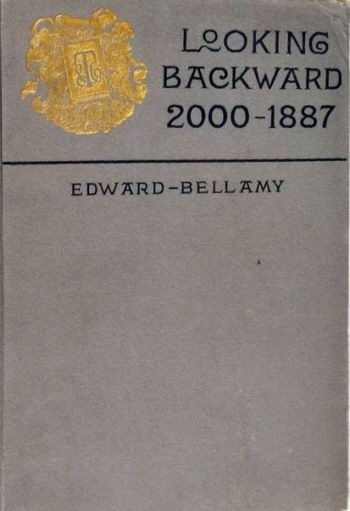Looking Backward - Novel
Looking Backward, 2000-1887 is a utopian novel, written by Edward Bellamy and published in 1888. Bellamy wrote this novel as an attempt to express his disillusionment with industrial society, and to represent the utopian community what it could truly be where the government would eradicated all evils of society through the control of economy.
The book tells the story of Julian West, who falls into a hypnosis sleep and awakes in the same spot, Boston, but after 113 years in the year 2000. For that time, The U.S.A. has been changed and transformed into a socialist utopia. He meets Doctor Leete who tells him advances of this new world. The rest of the book is dialogue between them where Julian inquires about some issues that represent problems in 19th century and Dr. Leete responds to his questions.
Julian asks about the problem of labor strikes, the prominent issue in his time, and about unemployment. In the 19th century it was big problem, people were forced to beg or to wait outside factories for jobs. He is surprised when Dr. Leete tells him that the so-called industrial army provides jobs for everyone as well as free and mandatory education. People get their jobs based on their wishes and qualifications, and retire at the age of 45. Another problem in the 19th century was wages, that were on the average very low and by that money workers could buy only food. In this world, everyone earns the same thing. There is no money and hence, there is no need for crime and jealously since everybody has the same.
In the 19th century, there was always a surplus or lack of certain product, but it isn't case in this new world. Now, there is never a shortage and surplus because distribution is carefully calculated.
Female and child labor was also problem in the 19th century. They were less paid than others, but now woman is paid equally as man, children are not allowed to work because they have to go to school until the age of 21.
The technology depicted in this book is compared with actual social and technological developments of his time, he didn't envision any thing, except the concept of credit cards.
Bellamy wrote a sequel, Equality, in 1897, where he wrote about many issues, such as women's right, education, etc.
